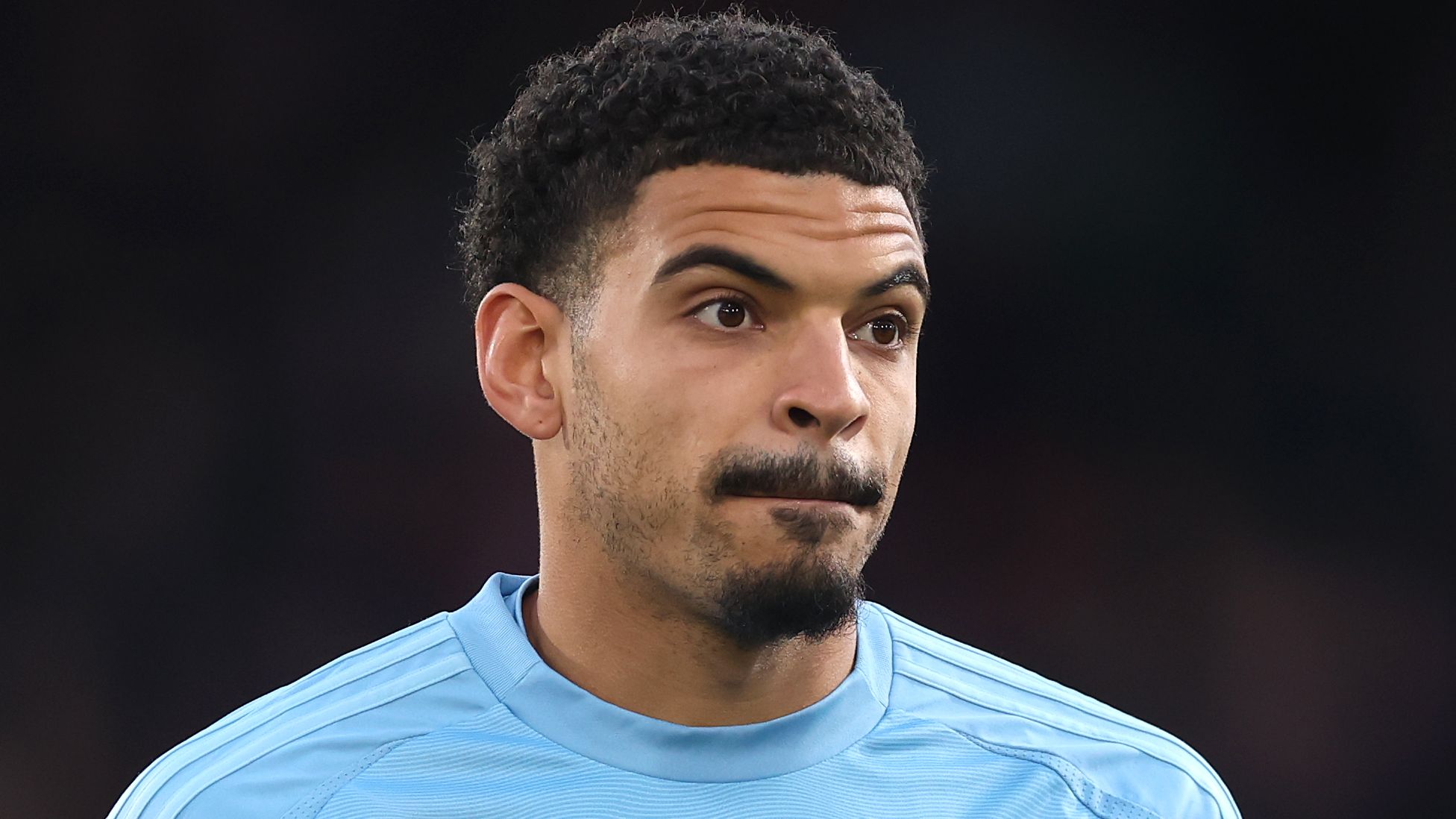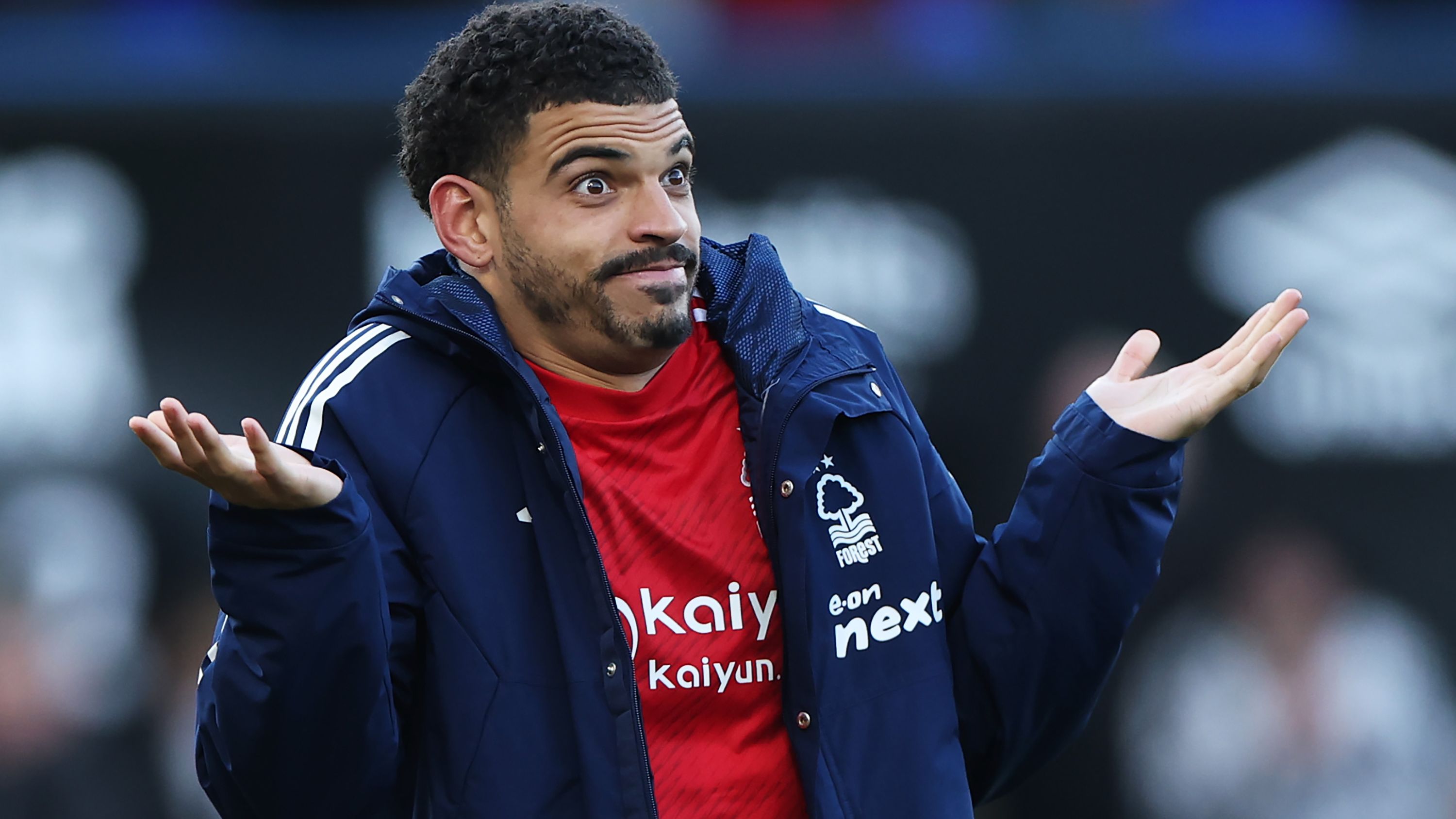Unfolding Drama: The Fierce Clash Over Gibbs-White’s Potential Move to Tottenham
In the midst of escalating tensions in the football world, Morgan Gibbs-White‘s aspirations to join Tottenham Hotspur have ignited a major conflict with Nottingham Forest, highlighting issues of player contracts and club ethics.
- Jamie O’Hara blasts Forest’s treatment of Gibbs-White
- Tottenham's £60m bid sparks legal row with Forest
- Premier League could step in amid transfer stand-off



The Transfer Dispute Involving Gibbs-White and Tottenham Hotspur
Background of the Stalled Negotiations
Recent efforts by Tottenham Hotspur to bring in the talented Morgan Gibbs-White have encountered unexpected delays, even though they successfully triggered his agreed-upon exit provision valued at £60 million last week. Nottingham Forest has leveled charges of improper tactics against the London outfit and is preparing to pursue legal measures, while the player himself has engaged in intense discussions with his current team to push for a timely transfer ahead of pre-season activities.
Complications Arising from Legal Accusations
What was anticipated as a simple transaction has turned chaotic due to Nottingham Forest‘s claims of misconduct, drawing attention from the Premier League, which may initiate a review. This scenario has fueled wider conversations about athlete freedoms and the clarity of agreements, with former Tottenham player Jamie O’Hara recently voicing strong disapproval toward Nottingham Forest‘s conduct.
Criticism from Industry Figures
O’Hara’s Strong Views on the Matter
During an interview with Grosvenor Sport, O’Hara expressed his frustration, advising that Morgan Gibbs-White should consult the PFA, initiate a lawsuit against Nottingham Forest, and halt participation in training sessions. He labeled the club’s actions as shameful and entirely mishandled.
Insights into Contractual Obligations
Gibbs-White entered into his deal with a clear buyout option set at £60 million, a detail known to all involved parties, including the player, his representative, and Nottingham Forest. If his value has risen due to improved performance, that’s a credit to his efforts, yet the club now seems to regret the transparency of that term.
Questions of Confidentiality in Football Deals
In the common practice of sharing contract details among agents and insiders, Nottingham Forest is suddenly claiming secrecy around the clause, raising valid concerns. Led by owner Evangelos Marinakis, the club risks losing Gibbs-White at the original price point simply because his progress exceeded expectations and word got out, which O’Hara deems an unjust and poorly thought-out stance. Players have every right to discuss their own terms after putting in the hard work, and it’s baffling how a once-agreed contract is now being portrayed as unlawful.
Potential Premier League Intervention
Escalating the Situation
Should Nottingham Forest formally submit their grievances, the Premier League might get involved to mediate. Meanwhile, Gibbs-White, who represents England, is resolute about finalizing his move to Tottenham, and further courtroom battles could emerge if both he and the club choose to counterattack as tensions mount.
The Ongoing Dispute Between Morgan Gibbs-White and Nottingham Forest
Background of the Blocked Tottenham Transfer
In the world of Premier League football, transfer disputes can turn into high-stakes battles, and the case of Morgan Gibbs-White is a prime example. Gibbs-White, a talented midfielder known for his dribbling skills and vision on the pitch, has been at the center of a heated £60m dispute with his current club, Nottingham Forest. The controversy stems from Forest’s decision to block a potential move to Tottenham Hotspur, despite reported interest and negotiations that could have seen Gibbs-White switch teams.
This situation highlights how clubs often wield significant power in transfer windows, using contract clauses and valuations to their advantage. For Gibbs-White, who has been linked to top-tier moves in recent seasons, the blocked transfer represents not just a career setback but potentially a financial loss. Experts in football law have pointed out that such disputes can drag on, affecting a player’s market value and mental well-being, especially when a £60m deal is on the line.
Key elements of the dispute include:
- Nottingham Forest’s insistence on a high valuation, reportedly around £60m, which Tottenham was unwilling to meet fully.
- Gibbs-White’s camp arguing that the club’s refusal was unreasonable, potentially breaching contract terms or fair play regulations.
- The broader impact on Gibbs-White’s career, as delayed transfers can limit playing time and exposure in elite competitions.
Why Legal Action is Being Advised for Morgan Gibbs-White
Football agents and legal experts are increasingly advising players like Gibbs-White to explore legal routes when transfers are unjustly blocked. In this ongoing £60m dispute, the recommendation for legal action stems from concerns over contract violations, such as restrictive clauses that might prevent a player from pursuing better opportunities.
For instance, Gibbs-White’s representatives could argue that Nottingham Forest’s actions interfere with his right to career progression, a principle often upheld in sports arbitration. This advice isn’t taken lightly; it’s based on precedents from similar cases, like those involving other high-profile players in transfer sagas. Pursuing legal action might involve:
- Filing a claim through the Court of Arbitration for Sport (CAS) or English football authorities.
- Seeking compensation for lost wages or diminished future earnings due to the blocked Tottenham transfer.
- Negotiating a release through mediation to avoid prolonged court battles.
Experts suggest that if the £60m valuation is deemed inflated or not in line with market standards, Gibbs-White could have a strong case. This approach not only protects the player’s interests but also sets a precedent for future football transfer negotiations.
Potential Legal Grounds and Steps to Take
When diving into the specifics of a £60m dispute like this, it’s essential to understand the legal grounds that could favor Morgan Gibbs-White. Under English law and FIFA regulations, players have rights related to contract termination and unreasonable restraints. For Gibbs-White, the blocked transfer to Tottenham might qualify as a breach if it’s shown that Forest acted in bad faith.
Here are some key legal grounds to consider:
- Breach of Contract: If Gibbs-White’s deal with Forest includes clauses allowing transfers under certain conditions, blocking the move could be seen as a violation.
- Unreasonable Restraint of Trade: Courts have ruled that overly restrictive contracts can limit a player’s ability to work, potentially leading to injunctions.
- FIFA Transfer Rules: These guidelines emphasize fair play, and disputes can be escalated to FIFA’s dispute resolution chamber for impartial review.
Steps for pursuing legal action might include:
- Initial Consultation: Gibbs-White should consult with a sports lawyer specializing in football transfers to assess the strength of his case.
- Mediation Attempts: Before heading to court, mediated talks with Nottingham Forest could resolve the £60m dispute amicably, saving time and resources.
- Formal Proceedings: If needed, escalate to the Premier League’s arbitration panel or civil courts, where evidence like transfer offers and contract details would be crucial.
This process underscores the importance of thorough documentation, as every email, offer, and negotiation can play a role in building a solid case.
Implications for Football Transfers and Player Rights
The Morgan Gibbs-White saga sheds light on broader trends in football, where £60m disputes are becoming more common amid rising transfer fees. Clubs like Nottingham Forest often prioritize financial stability, but this can clash with a player’s ambitions, leading to tensions that affect the entire sport.
In recent years, similar cases have prompted changes in how transfers are handled, with a focus on protecting player rights. For fans and stakeholders, this dispute raises questions about:
- How valuations like £60m are determined and whether they reflect a player’s true worth.
- The role of agents in advocating for players during blocked transfers.
- Potential reforms, such as more transparent negotiation processes, to prevent future conflicts.
Staying informed about these developments can help football enthusiasts understand the intricacies of the sport beyond the pitch.
Expert Advice on Navigating the Dispute
When it comes to advice for players in a £60m dispute, experts often emphasize a balanced approach. For Gibbs-White, seeking legal counsel early can make all the difference. Key tips include:
- Gathering Evidence: Collect all correspondence related to the Tottenham transfer to strengthen any legal claims.
- Weighing the Risks: Legal action can be lengthy and public, potentially impacting Gibbs-White’s reputation, so alternatives like contract renegotiation should be explored first.
- Financial Considerations: Factor in costs versus potential gains, as winning a case could lead to significant compensation.
By addressing these aspects, the ongoing dispute might not only resolve favorably for Gibbs-White but also contribute to fairer practices in football transfers overall.









